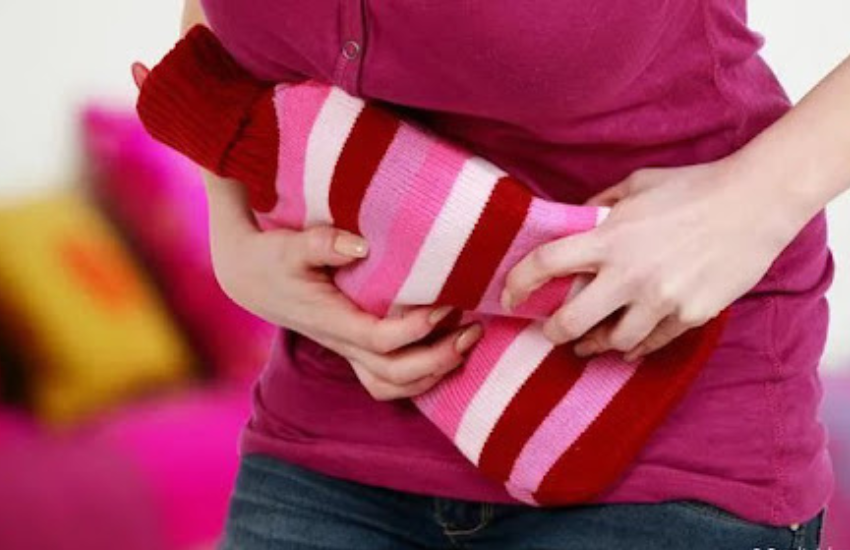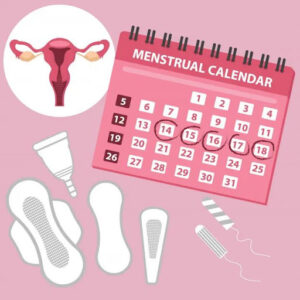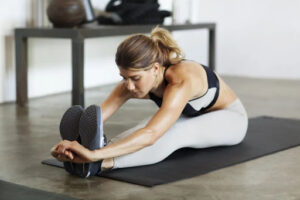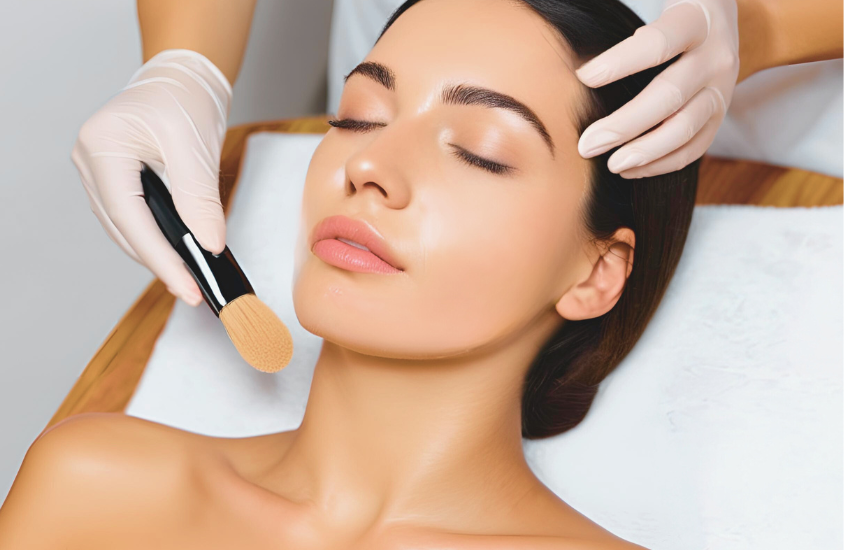
The menstrual cycle can be a vulnerable time for many women, with symptoms such as breast tenderness, abdominal cramps, and mood swings making it challenging to navigate everyday life. Taking care of yourself during your menstrual cycle is crucial for managing these symptoms and maintaining your overall well-being. But with so many different strategies and advice out there, it can be hard to know where to start. That's why we've put together a list of tips and techniques to help you prioritise self-care during your menstrual cycle. Whether you're dealing with mild discomfort or more severe symptoms, these tips can help you feel more comfortable, energised, and in control throughout your cycle.
 Focus on consuming warm foods.
During your menstrual cycle, it is important to avoid eating raw, cold vegetables and fruits or drinking ice-cold beverages. Additionally, seafood is typically considered "cold" in nature, so it is best to consume it in moderation. Consuming cold foods can decrease blood circulation, which can affect uterine contractions and menstrual blood discharge, leading to menstrual pain.
Stay warm.
Staying warm is an important part of self-care during menstruation. Changes in temperature can affect the shedding of the endometrium, which can cause changes in menstrual bleeding and pain. To prevent these issues, it's a good idea to keep your lower abdomen and waist warm during your menstrual cycle. This can be achieved by wearing warm clothing that covers the area, such as comfortable leggings, a soft sweater, or a cosy scarf. You can also use a hot water bottle or heating pad to provide additional warmth and comfort to the lower abdomen. This can help to soothe menstrual pain and cramping and provide a sense of relief during your cycle. Additionally, staying warm can help you feel more relaxed and comfortable, which can be beneficial for your overall well-being.
Focus on consuming warm foods.
During your menstrual cycle, it is important to avoid eating raw, cold vegetables and fruits or drinking ice-cold beverages. Additionally, seafood is typically considered "cold" in nature, so it is best to consume it in moderation. Consuming cold foods can decrease blood circulation, which can affect uterine contractions and menstrual blood discharge, leading to menstrual pain.
Stay warm.
Staying warm is an important part of self-care during menstruation. Changes in temperature can affect the shedding of the endometrium, which can cause changes in menstrual bleeding and pain. To prevent these issues, it's a good idea to keep your lower abdomen and waist warm during your menstrual cycle. This can be achieved by wearing warm clothing that covers the area, such as comfortable leggings, a soft sweater, or a cosy scarf. You can also use a hot water bottle or heating pad to provide additional warmth and comfort to the lower abdomen. This can help to soothe menstrual pain and cramping and provide a sense of relief during your cycle. Additionally, staying warm can help you feel more relaxed and comfortable, which can be beneficial for your overall well-being.
 Practice good hygiene.
It's a common misconception that cleaning the genital area during menstruation is unnecessary or even harmful. However, proper hygiene is crucial during this time to prevent infections and maintain overall health. While sitz or tub baths are not recommended, gentle rinsing of the external genital area with a shower is safe and necessary. It's also important to change pads or tampons regularly and wash hands thoroughly before and after handling menstrual products. Additionally, wearing clean and breathable underwear can help prevent moisture buildup and decrease the risk of infection.
Avoid high-impact exercise.
Strenuous exercise during menstruation can cause discomfort throughout the body, especially in the abdomen, which may intensify bloating and pain. Additionally, activities that compress the abdomen, such as sit-ups, may lengthen the menstrual cycle and cause abdominal and back pain.
Practice good hygiene.
It's a common misconception that cleaning the genital area during menstruation is unnecessary or even harmful. However, proper hygiene is crucial during this time to prevent infections and maintain overall health. While sitz or tub baths are not recommended, gentle rinsing of the external genital area with a shower is safe and necessary. It's also important to change pads or tampons regularly and wash hands thoroughly before and after handling menstrual products. Additionally, wearing clean and breathable underwear can help prevent moisture buildup and decrease the risk of infection.
Avoid high-impact exercise.
Strenuous exercise during menstruation can cause discomfort throughout the body, especially in the abdomen, which may intensify bloating and pain. Additionally, activities that compress the abdomen, such as sit-ups, may lengthen the menstrual cycle and cause abdominal and back pain.
 Avoid sexual activity.
It's generally recommended to avoid sexual activity during menstruation. When the endometrial lining of the uterus sheds, it leaves a surface wound that is more vulnerable to infections. Engaging in sexual activity during this time can introduce bacteria, which can enter the uterine cavity and cause an infection. In addition to this, menstrual cramps and discomfort may also make sexual activity more painful and uncomfortable.
Rest more.
Rest is an essential part of self-care during menstruation. As the body goes through hormonal changes and the uterus sheds its lining, it's not uncommon to experience fatigue and discomfort during this time. Giving your body the rest it needs can help to relieve these symptoms and support your overall well-being. During menstruation, it's a good idea to prioritise rest and relaxation. This may mean getting extra sleep at night, taking naps during the day, and avoiding strenuous physical activity that could worsen menstrual cramps or fatigue.
If possible, try to spend some time resting in bed, reading a book, or doing a calming activity to help soothe your body and mind. Remember that it's okay to take things a bit slower during your period and to prioritise self-care as much as possible.
Avoid sexual activity.
It's generally recommended to avoid sexual activity during menstruation. When the endometrial lining of the uterus sheds, it leaves a surface wound that is more vulnerable to infections. Engaging in sexual activity during this time can introduce bacteria, which can enter the uterine cavity and cause an infection. In addition to this, menstrual cramps and discomfort may also make sexual activity more painful and uncomfortable.
Rest more.
Rest is an essential part of self-care during menstruation. As the body goes through hormonal changes and the uterus sheds its lining, it's not uncommon to experience fatigue and discomfort during this time. Giving your body the rest it needs can help to relieve these symptoms and support your overall well-being. During menstruation, it's a good idea to prioritise rest and relaxation. This may mean getting extra sleep at night, taking naps during the day, and avoiding strenuous physical activity that could worsen menstrual cramps or fatigue.
If possible, try to spend some time resting in bed, reading a book, or doing a calming activity to help soothe your body and mind. Remember that it's okay to take things a bit slower during your period and to prioritise self-care as much as possible.
 Watch what you eat during menstruation.
Consuming salty and oily foods during this time can worsen premenstrual symptoms and cause other health problems. Instead, choose foods that are easy to digest, such as soups, stews, and cooked vegetables, to support your digestion and overall health during your menstrual cycle.
Watch what you eat during menstruation.
Consuming salty and oily foods during this time can worsen premenstrual symptoms and cause other health problems. Instead, choose foods that are easy to digest, such as soups, stews, and cooked vegetables, to support your digestion and overall health during your menstrual cycle.
 Focus on consuming warm foods.
During your menstrual cycle, it is important to avoid eating raw, cold vegetables and fruits or drinking ice-cold beverages. Additionally, seafood is typically considered "cold" in nature, so it is best to consume it in moderation. Consuming cold foods can decrease blood circulation, which can affect uterine contractions and menstrual blood discharge, leading to menstrual pain.
Stay warm.
Staying warm is an important part of self-care during menstruation. Changes in temperature can affect the shedding of the endometrium, which can cause changes in menstrual bleeding and pain. To prevent these issues, it's a good idea to keep your lower abdomen and waist warm during your menstrual cycle. This can be achieved by wearing warm clothing that covers the area, such as comfortable leggings, a soft sweater, or a cosy scarf. You can also use a hot water bottle or heating pad to provide additional warmth and comfort to the lower abdomen. This can help to soothe menstrual pain and cramping and provide a sense of relief during your cycle. Additionally, staying warm can help you feel more relaxed and comfortable, which can be beneficial for your overall well-being.
Focus on consuming warm foods.
During your menstrual cycle, it is important to avoid eating raw, cold vegetables and fruits or drinking ice-cold beverages. Additionally, seafood is typically considered "cold" in nature, so it is best to consume it in moderation. Consuming cold foods can decrease blood circulation, which can affect uterine contractions and menstrual blood discharge, leading to menstrual pain.
Stay warm.
Staying warm is an important part of self-care during menstruation. Changes in temperature can affect the shedding of the endometrium, which can cause changes in menstrual bleeding and pain. To prevent these issues, it's a good idea to keep your lower abdomen and waist warm during your menstrual cycle. This can be achieved by wearing warm clothing that covers the area, such as comfortable leggings, a soft sweater, or a cosy scarf. You can also use a hot water bottle or heating pad to provide additional warmth and comfort to the lower abdomen. This can help to soothe menstrual pain and cramping and provide a sense of relief during your cycle. Additionally, staying warm can help you feel more relaxed and comfortable, which can be beneficial for your overall well-being.
 Practice good hygiene.
It's a common misconception that cleaning the genital area during menstruation is unnecessary or even harmful. However, proper hygiene is crucial during this time to prevent infections and maintain overall health. While sitz or tub baths are not recommended, gentle rinsing of the external genital area with a shower is safe and necessary. It's also important to change pads or tampons regularly and wash hands thoroughly before and after handling menstrual products. Additionally, wearing clean and breathable underwear can help prevent moisture buildup and decrease the risk of infection.
Avoid high-impact exercise.
Strenuous exercise during menstruation can cause discomfort throughout the body, especially in the abdomen, which may intensify bloating and pain. Additionally, activities that compress the abdomen, such as sit-ups, may lengthen the menstrual cycle and cause abdominal and back pain.
Practice good hygiene.
It's a common misconception that cleaning the genital area during menstruation is unnecessary or even harmful. However, proper hygiene is crucial during this time to prevent infections and maintain overall health. While sitz or tub baths are not recommended, gentle rinsing of the external genital area with a shower is safe and necessary. It's also important to change pads or tampons regularly and wash hands thoroughly before and after handling menstrual products. Additionally, wearing clean and breathable underwear can help prevent moisture buildup and decrease the risk of infection.
Avoid high-impact exercise.
Strenuous exercise during menstruation can cause discomfort throughout the body, especially in the abdomen, which may intensify bloating and pain. Additionally, activities that compress the abdomen, such as sit-ups, may lengthen the menstrual cycle and cause abdominal and back pain.
 Avoid sexual activity.
It's generally recommended to avoid sexual activity during menstruation. When the endometrial lining of the uterus sheds, it leaves a surface wound that is more vulnerable to infections. Engaging in sexual activity during this time can introduce bacteria, which can enter the uterine cavity and cause an infection. In addition to this, menstrual cramps and discomfort may also make sexual activity more painful and uncomfortable.
Rest more.
Rest is an essential part of self-care during menstruation. As the body goes through hormonal changes and the uterus sheds its lining, it's not uncommon to experience fatigue and discomfort during this time. Giving your body the rest it needs can help to relieve these symptoms and support your overall well-being. During menstruation, it's a good idea to prioritise rest and relaxation. This may mean getting extra sleep at night, taking naps during the day, and avoiding strenuous physical activity that could worsen menstrual cramps or fatigue.
If possible, try to spend some time resting in bed, reading a book, or doing a calming activity to help soothe your body and mind. Remember that it's okay to take things a bit slower during your period and to prioritise self-care as much as possible.
Avoid sexual activity.
It's generally recommended to avoid sexual activity during menstruation. When the endometrial lining of the uterus sheds, it leaves a surface wound that is more vulnerable to infections. Engaging in sexual activity during this time can introduce bacteria, which can enter the uterine cavity and cause an infection. In addition to this, menstrual cramps and discomfort may also make sexual activity more painful and uncomfortable.
Rest more.
Rest is an essential part of self-care during menstruation. As the body goes through hormonal changes and the uterus sheds its lining, it's not uncommon to experience fatigue and discomfort during this time. Giving your body the rest it needs can help to relieve these symptoms and support your overall well-being. During menstruation, it's a good idea to prioritise rest and relaxation. This may mean getting extra sleep at night, taking naps during the day, and avoiding strenuous physical activity that could worsen menstrual cramps or fatigue.
If possible, try to spend some time resting in bed, reading a book, or doing a calming activity to help soothe your body and mind. Remember that it's okay to take things a bit slower during your period and to prioritise self-care as much as possible.
 Watch what you eat during menstruation.
Consuming salty and oily foods during this time can worsen premenstrual symptoms and cause other health problems. Instead, choose foods that are easy to digest, such as soups, stews, and cooked vegetables, to support your digestion and overall health during your menstrual cycle.
Watch what you eat during menstruation.
Consuming salty and oily foods during this time can worsen premenstrual symptoms and cause other health problems. Instead, choose foods that are easy to digest, such as soups, stews, and cooked vegetables, to support your digestion and overall health during your menstrual cycle.




